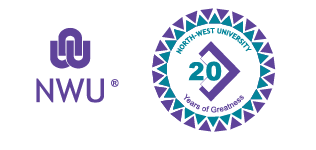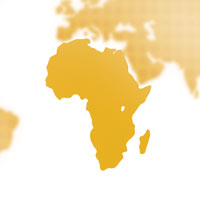 NEWSLETTER ISSUE #3/2017
NEWSLETTER ISSUE #3/2017
|
Africa in focus
Much of TRADE’s research work centres on Africa – as a market, supplier, investment location and source of development opportunities for regional powers. Zimbabwe's unexpected import ban, in the middle of last year, on a raft of goods from South Africa demonstrated how a swift and unthinking change to the law can have severe consequences for cross-border traders and their regular buyers. The build-up to and analysis of this unprecedented move on Zimbabwe's part, and the options that South Africa faced, were outlined in a special research note titled 'Zimbabwe-South Africa relations under pressure: an eye for an eye or turn the other cheek?' FDI in Africa is a key research focus area of Prof Henri Bezuidenhout. In October 2016, he presented some of his research findings on the topic in two separate papers at the 82nd International Atlantic Economic Conference in Washington, D.C. in the United States: ‘Determinants of cross-border mergers and acquisitions in the freight and logistics industry of South Africa: A qualitative approach’ and ‘Investigating the value chain dimension of FDI in and outflows of the agro-industrial sector of South Africa’. Also in October, Prof Derick Blaauw was in Windhoek in Namibia to deliver a paper titled ‘The socioeconomic incorporation of migrant and native-born day labourers in Tshwane’, at the 8th Annual Research Conference of the University of Namibia’s Faculty of Humanities and Social Sciences. The paper, which was the result of a collaborative study with colleagues from the University of the Western Cape and University of Illinois in Chicago, revealed the challenges associated with integrating the informal day labourer community into Namibia’s mainstream economy – a topic that resonated with the conference theme of the importance of aligning research activities with the Sustainable Development Goals (SDGs).
During the latter half of 2016, TRADE partnered with IBIS Business and Information Services, headed by Dr Marie-Luce Kühn, in a research study commissioned by the Geneva-based ICTSD (International Centre for Trade and Sustainable Development) to explore the evolving trade and investment ties between the ECOWAS member states in West Africa and a number of emerging economies (including China and India). ECOWAS faces many development challenges, from an over-reliance on commodity exports to weak integration efforts. The growing interest from emerging economies could be a game changer for ECOWAS. However, regional governments need to ensure that trade and investment deals remain balanced and do not sacrifice long-term development prospects for short-term gains.
Related news:
|
|
Africa in focus
Archive newsletters |

